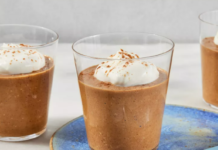Pineapple tastes like nature’s candy. Sweet, juicy and fragrant, the fruit is both a treat and a healthy snack if you get past its prickly exterior.
Long used in traditional medicine to help with digestion and for its anti-inflammatory properties, pineapple is a rich source of nutrients, minerals, vitamins, bioactive compounds and dietary fiber, researchers have found.
“It’s a really good source of vitamin C,” Sarah Rivenburgh, a registered dietitian at OhioHealth who specializes in oncology nutrition, tells TODAY.com.
‘Your body can’t make it, so it has to get it from food. Pineapple can be a good way to get some of that vitamin C, especially if you’re not a fan of oranges.”
Pineapples used to be considered a status symbol — “a luxury available only to royalty and aristocrats,” according to the Smithsonian. Today, the fruit is as close as your local supermarket and the subject of intense debate when it comes to pizza toppings.
Pineapple aroma — known as ethyl butyrate — was ranked as one of the most pleasant smells by people around the world, second only to vanilla, a 2022 study found.
Pineapple nutrition
One cup of raw pineapple chunks contains the following, according to the U.S. Department of Agriculture:
82 calories
0.9 grams of protein
22 grams of carbohydrates
2 grams of fiber
16 grams of sugar
180 milligrams of potassium
This amount of raw pineapple also contains more than 100% of the vitamin C and more than 10% of vitamin B6 a woman should get for the day. Other nutrients include calcium, magnesium, iron, copper, manganese and folate.
There’s no cholesterol and virtually no fat in the fruit.
Pineapple benefits
Dietitians are fans of pineapple’s high vitamin C content. It’s an antioxidant — protecting the body from free radical damage and inflammation — and is important for skin health and processes such as collagen synthesis, wound healing and tissue growth and repair, Rivenburgh says.
“Vitamin C also helps your body absorb plant sources of iron,” she adds.
“So as people are transitioning to more of a plant-based way of eating, sometimes having extra vitamin C can help your body absorb iron from foods like spinach or beans to make sure you’re not deficient in iron.”
Vitamin C plays an important role in immune function, according to the National Institutes of Health. Researchers are studying whether its antioxidant activity might help prevent cancer or heart disease, it adds.
Then, there’s the fiber in pineapple. Pineapple contains mainly insoluble fiber, or roughage, which helps to keep the bowels moving regularly, adds bulk to stool and keeps the gut healthy by feeding the good bacteria in the microbiome, Rivenburgh notes.
“It keeps you full longer also,” helping to promote weight loss, she says.
Pineapple contains a unique enzyme called bromelain that breaks down proteins and has anti-inflammatory properties, according to the National Cancer Institute.
You might recognize the name as a meat tenderizer but it’s also a digestion aid, though there’s not enough research to say it’s effective for digestive problems, the National Center for Complementary and Integrative Health notes.
Preliminary research does show bromelain helps to remove dead and damaged skin from burns, the Center adds.
Bromelain may also help relieve post-surgery pain or the discomfort of arthritis.
“That could be possible just because it does have anti-inflammatory properties. So if you’re having pain at your joints and this can potentially help decrease that inflammation,” Rivenburgh says.
Bromelain has also been suggested to have some anti-cancer effects but more human studies are needed to know for sure, she adds.
Because pineapple contains melatonin, registered dietitian Keri Glassman named it one of her favorite five foods to help people sleep better.
Pineapple risks
Pineapple can cause mouth irritation because it’s acidic and contains bromelain — in a sense, the enzyme is tenderizing you.
Symptoms include a burning sensation or soreness of the mouth and tongue as the fruit is consumed, researchers caution. Remedies include eating pineapple with a dairy product or sprinkling it with salt.
But this is not to be confused with an allergic reaction to pineapple, symptoms of which include, itching and swelling of the lips, throat and tongue. Heating the fruit before eating it can help.
Anaphylaxis, or a severe allergic reaction, is also possible. People allergic to pineapple should avoid it and carry an EpiPen just in case.
Does pineapple have a lot of sugar?
It’s certainly sweet, but the amount of natural sugar in pineapple is “perfectly acceptable” as long as you’re eating the right portion size — about 1 cup — and not more, Rivenburgh says.
What’s the best way to eat pineapple?
A ripe pineapple eaten fresh by itself is perfect, but you could also add it to a fruit salad, smoothie, yogurt parfait or on top of a pizza.
Crushed pineapple can serve as an ice cream topping or be incorporated into a cake or a quick bread, Rivenburgh suggests. Dried pineapple can be added into a trail mix.
Canned pineapple may contain less vitamin C than the fresh fruit because vitamin C is heat sensitive, she notes.
“But I always say eating any fruit or vegetable is better than no fruit or vegetables, so if you only have access to canned pineapple or you only liked canned, it’s still perfectly acceptable to eat that,” Rivenburgh adds.













